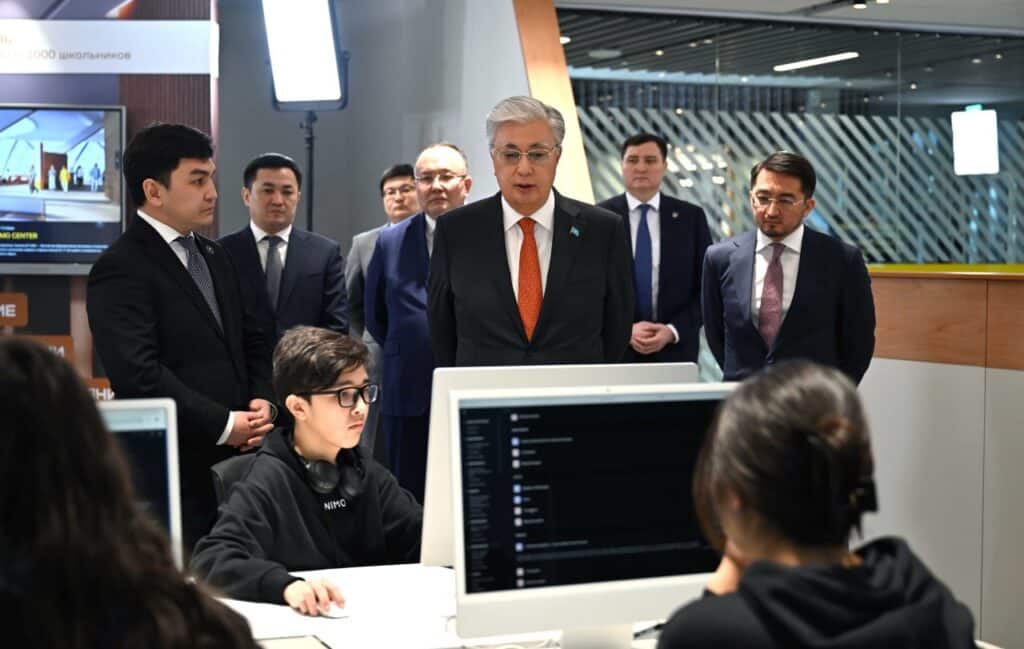Tokayev wants cabinet to promote AI skills among Kazakhstanis

During a visit to AlemAI International Center, President Kassym-Jomart Tokayev of Kazakhstan instructed the cabinet to explain the benefits of artificial intelligence (AI) to every Kazakhstani citizen and teach them how to use this technology. As a result, the country’s authorities also plan to expand training programs for specialists in the field of AI.
«We have taught AI to think, analyze and speak the Kazakh language. This remarkable milestone paves the way for the development of the Kazakh language in the digital environment. It’s now essential to continue this significant effort. The next task is to develop a multimodal language model for the Kazakh language that will be capable of processing various data types. I want the cabinet to consider how these projects can be financed,» Tokayev said.
He also emphasized that the goal of teaching AI skills to 1 million people over the next five years requires special attention. Educational programs targeting school students, government employees and entrepreneurs must receive maximum support.
«I instruct the cabinet to examine the gradual implementation of the AI-Sana training program for AI specialists. This program should contribute to the creation of a dynamic ecosystem that integrates training, research and startup development. It’s crucial to follow the example of leading international universities. Every Kazakhstani must understand the usefulness of AI, so we must explain why this technology is needed and how it might be used,» Tokayev said.
The government is also expected to introduce mechanisms that will allow Kazakhstani citizens to use AI everywhere.
«Kazakhstan possesses all the resources needed to secure a leading position in innovation and advanced technology. Digitalization and the widespread adoption of AI will ensure sustained progress for our country. I am confident that this ambitious goal is within our capabilities,» Tokayev summed up.
Kursiv.media also reported that Kazakhstan is negotiating with Telegram, TON, Tether, Google, EPAM and other global IT companies to establish their offices in Astana. It is assumed that they will be engaged in R&D projects and will develop new products here.

